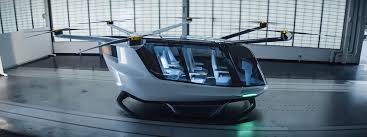
Breaking News
 Grand Theft World Podcast 273 | Goys 'R U.S. with Guest Rob Dew
Grand Theft World Podcast 273 | Goys 'R U.S. with Guest Rob Dew
 Anchorage was the Receipt: Europe is Paying the Price… and Knows it.
Anchorage was the Receipt: Europe is Paying the Price… and Knows it.
 The Slow Epstein Earthquake: The Rupture Between the People and the Elites
The Slow Epstein Earthquake: The Rupture Between the People and the Elites
 Israeli Prime Minister, Netanyahu will meet with Trump on Wednesday and deliver instructions...
Israeli Prime Minister, Netanyahu will meet with Trump on Wednesday and deliver instructions...
Top Tech News
 Drone-launching underwater drone hitches a ride on ship and sub hulls
Drone-launching underwater drone hitches a ride on ship and sub hulls
 Humanoid Robots Get "Brains" As Dual-Use Fears Mount
Humanoid Robots Get "Brains" As Dual-Use Fears Mount
 SpaceX Authorized to Increase High Speed Internet Download Speeds 5X Through 2026
SpaceX Authorized to Increase High Speed Internet Download Speeds 5X Through 2026
 Space AI is the Key to the Technological Singularity
Space AI is the Key to the Technological Singularity
 Velocitor X-1 eVTOL could be beating the traffic in just a year
Velocitor X-1 eVTOL could be beating the traffic in just a year
 Starlink smasher? China claims world's best high-powered microwave weapon
Starlink smasher? China claims world's best high-powered microwave weapon
 Wood scraps turn 'useless' desert sand into concrete
Wood scraps turn 'useless' desert sand into concrete
 Let's Do a Detailed Review of Zorin -- Is This Good for Ex-Windows Users?
Let's Do a Detailed Review of Zorin -- Is This Good for Ex-Windows Users?
 The World's First Sodium-Ion Battery EV Is A Winter Range Monster
The World's First Sodium-Ion Battery EV Is A Winter Range Monster
 China's CATL 5C Battery Breakthrough will Make Most Combustion Engine Vehicles OBSOLETE
China's CATL 5C Battery Breakthrough will Make Most Combustion Engine Vehicles OBSOLETE
Skai hydrogen-powered eVTOL air taxi boasts enormous 400-mile

Alaka'i Technologies' Skai machine has a range of up to four hours/400 mi (640 km) and a five-passenger capacity.
Hydrogen is a difficult fuel to deal with in an automotive context, but it might just be the shot in the arm that the electric aviation industry needs to get VTOL multicopter air taxis up and running. Current lithium battery technology offers poor energy density, which severely limits the range figures of current e-VTOL projects. But hydrogen offers up to 10 times the energy density, as well as gasoline-quick refueling, if you can deal with the inefficiencies of producing, transporting and storing it. And those difficulties can be better managed in a centralized aviation model that doesn't need to roll out across the entire road network.
Thus, Massachusetts-based Alaka'i Technologies has spent the last four years beavering away at building a hydrogen-powered air taxi, which it launched today in California. According to an interview with SoCalTech, the company is operating under the funding of a sole investor, who has carried it through design, development, prototyping and is now footing the bill for FAA certification, which Alaka'i CEO Steve Hanvey says he believes should be possible before the end of 2020 due to the simplicity of the airframe.



